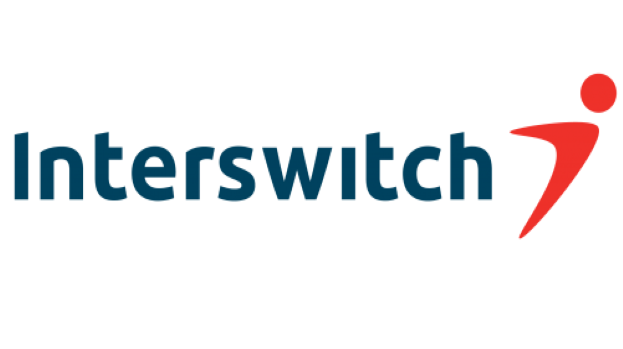E-Business
How to Participate in Sophos Enhanced MEA Partner Program

Sophos, a global leader in network and endpoint security recently announced a new partner program for resellers in the Middle East and Africa (MEA), to help channel partners achieve their growth objectives with competitive margins, dedicated marketing and sales support, deal registration protection, sales tools, training and certification and other programs.
The core objective of the Sophos partner program is to equip partners with resources and training that enable them to sell, market, distribute and implement the company’s award-winning cloud, network, server and enduser protection solutions to organizations of all sizes.
The new Sophos partner program provides access to the company’s comprehensive portfolio of market-leading endpoint and network security products, which have been engineered keeping its partners in mind.
Partners are now able to manage all Sophos solutions for every customer through a centralized management platform, Sophos Central.
Within Sophos Central is Sophos Central-Partner, a specialized dashboard that allows partners to distribute licenses, add new customers on demand, cross- and upsell services, drive recurring revenue and have a clear, real-time perspective on all customer activity.
Partners can respond to security incidents faster and track alerts of all levels directly from the dashboard, so time spent handling incidents, including minor ones, is more productive and effective.
The Sophos Central-Partner dashboard integrates with Professional Service Automation (PSA) software, and partners’ can tie-in and customize Remote Monitoring and Management (RMM) software from leading vendors to deploy and update Sophos agents locally.
This unlocks new avenues for all partners (Cyberoam and Sophos) to start selling abroad and powerful portfolio of IT security products allowing partners to deliver a “complete security” and a “synchronized security” solution to their customers.
This partner program actively reflects Sophos’s commitment to help partners sell next-generation IT security technology to address today’s sophisticated threats. Partners have a great opportunity to grow their business by making the most of the demand for advanced IT security solutionsand alsoexploring the clear upsell and cross-sell opportunities within existing customers.
“We realize there is tremendous diversity when it comes to selling approaches adopted by our security partners in the Middle East and Africa. We have developed our MEA Partner Program with feedback from our distributors and resellers and this collaboration has resulted in the introduction of a four-Level partner program that reflects our deep commitment towards partner engagement and their growth.
“This program will also bring Cyberoam and Sophos partners intoone program which is more efficient for our partners,” said Harish Chib, Vice president Middle East and Africa, Sophos. Commenting on Sophos’s channel first strategy he further added, “Sophos is the most channel/partner-focused IT security company in the world and sells exclusively through its channel of more than 20,000 resellers worldwide and is dedicated to the growth and success of partners.
“As part of the new program and Sophos’ “channel first, channel only” business strategy, the company offers partners sales consulting training and certification, co-branded marketing assets, 24/7 support and in-depth Sophos Central dashboard training to help build the skills and expertise of its partners.”
The Sophos Partner Program for Middle East and Africa
The new partner program consists of four levels (Authorized Entry Level, Silver, Gold and Platinum) based on sales performance each level increases in commitment to selling Sophos products and value delivered to customers.
The program includes offerings such as:
Simple deal registration and discount structure: Sophos’s partner program is easy to implement, predictable, equitable and reliable. Partners can either interact with Sophos directly or use the Partner Portal to do so, which offers a set of tools to simplify deal registration and get pricing
Strong product and solutions portfolio: Our partners have complete access to Sophos’s award-winning network, server and enduser protection solutions, including Sophos Cloud
Sales and marketing tools: Partners can benefit from a flexible and generous partner program, with dedicated support, deal registration protection and competitive margins
Training and certification: Focus on training and technical enablement helps partners increase the skill and competency of their sales and technical professionals, providing them with the knowledge to successfully sell, demo, deploy, support and service Sophos products
The Partner Program for MEA illustrates Sophos ‘commitment towards being a truly ‘channel first’ company that creates programs and incentives for better channel enablement and accelerate Sophos partner profitability.
For more information on the Sophos Partner Program, visit the Sophos website or to learn more about becoming a Sophos partner.
Read the latest security news and views on our award-winning Naked Security Newsand read more about Sophos at Sophos News.
More than 100 million users in 150 countries rely on Sophos’ complete security solutions as the best protection against complex threats and data loss.
Simple to deploy, manage and use, Sophos’ award-winning encryption, endpoint security, Web, email, mobile and network security solutions are backed by SophosLabs – a global network of threat intelligence centers.
You can register for the Webinar holding on August 16, 2016 via: https://attendee.gotowebinar.com/register/6642573431416501505
E-Business
Firm Identifies RenEngine Loader Distributed Through Pirated Games and Software

Kaspersky Threat Research has revealed its analysis of RenEngine, a malware loader that has recently gained public attention. Kaspersky identified RenEngine samples as early as March 2025, with its solutions already protecting users from the threat at that time.

Beyond the cracked games highlighted in recent reports, Kaspersky researchers discovered that attackers created dozens of websites distributing RenEngine through pirated software, including graphics editors like CorelDRAW. This expands the known attack surface beyond the gaming community to anyone seeking unlicensed software.
Kaspersky has recorded incidents in Russia, Brazil, Turkey, Spain and Germany, among other countries. The distribution pattern indicates opportunistic attacks rather than targeted operations.
When Kaspersky first identified RenEngine, the loader was delivering the Lumma stealer. Current attacks distribute ACR Stealer as the final payload, and Vidar stealer has also been observed in some infection chains.
The campaign exploits modified versions of games built on the Ren’Py visual novel engine. When users launch infected installers, a fake loading screen appears while malicious scripts execute in the background. The scripts include sandbox detection capabilities and decrypt a payload that initiates a multi-stage infection chain using HijackLoader, a modular malware delivery tool.
“This threat extends beyond pirated games — attackers are using the same technique to distribute malware through cracked productivity software, which broadens the potential victim pool significantly,” said Pavel Sinenko, lead malware analyst at Kaspersky Threat Research. “Game archive formats vary by engine and title. If an engine doesn’t check the integrity of its resources, attackers can embed malware that executes the moment you click play.”
Kaspersky solutions detect RenEngine as Trojan.Python.Agent.nb and HEUR:Trojan.Python.Agent.gen. HijackLoader is detected as Trojan.Win32.Penguish and Trojan.Win32.DllHijacker.
E-Business
Interswitch Partners Abia to Digitise Public Hospitals

Interswitch, a technology company, through its health-tech subsidiary, Interswitch eClat, has taken a major step in advancing Nigeria’s public-sector health digitisation agenda following the conclusion of a high-level stakeholders’ engagement with the Abia State Government.

The engagement took place ahead of the phased deployment of eClinic, Interswitch eClat’s Electronic Medical Records platform, across public health facilities in the state, the firm stated in a statement on Friday.
The engagement, convened by the Abia State Ministry of Health in collaboration with Interswitch and held at the State’s Ministry of Health in Umuahia, brought together senior government officials, health administrators, Interswitch representatives, and key ecosystem stakeholders to align on the scope, implementation framework, and expected outcomes of the proposed eClinic deployment.
The initiative reflects a shared commitment to leveraging digital infrastructure to improve healthcare delivery, operational efficiency, and patient outcomes across Abia State’s public health system.
Discussions focused on deploying Interswitch’s eClinic solution in alignment with Abia State’s broader healthcare reform agenda under the current administration, particularly the transition from fragmented, paper-based systems to secure, interoperable digital platforms across public health facilities.
The proposed kick-off phase will span six public health facilities, including three primary healthcare centres, two secondary facilities, and one tertiary hospital, creating an end-to-end digital care pathway that strengthens patient referrals, supports continuity of care, and enables data-driven decision-making across all levels of service delivery.
The EMR solution is built to reduce patient waiting times, strengthen referral processes, and ensure the secure handling of both clinical and administrative data, supported by a hybrid infrastructure that enables local hosting with cloud-based backup.
Speaking at the engagement, Prof Enoch Uche, the Commissioner for Health, Abia State, described the initiative as a major milestone in the state’s healthcare transformation journey and highlighted the importance of private-sector collaboration in achieving sustainable impact.
“The Ministry of Health in Abia State is excited about the digitisation of health facilities, starting with Interswitch’s eClinic pilot phase involving three primary, two secondary, and one tertiary health centre. This initiative will enhance efficiency, accountability, and patient care by linking records across different levels of care.
“Global evidence shows that digital health improves access, reduces the cost of care, and maximises human resources while personalising services for our people. This partnership with Interswitch represents a key deliverable for this administration and aligns with the Governor’s vision for a modern, technology-driven health system,” he said.
During technical sessions led by Babatunde Fadeyi, Vice President, Health Ecosystem (Public Sector), Interswitch, stakeholders were taken through the core capabilities of Interswitch’s eClinic platform.
These include secure patient record management, ICD-11–compliant diagnosis coding, controlled data update protocols, and integrated billing and reporting tools designed to improve efficiency and accountability across health facilities.
Stakeholders were also briefed on the platform’s governance framework, risk mitigation approach, and phased implementation roadmap. Commenting on the engagement, Fadeyi reaffirmed Interswitch’s commitment to delivering measurable impact through technology-enabled healthcare systems.
“Abia State has demonstrated a strong commitment to innovation and system reform. The alignment of the state’s healthcare priorities with national health digitisation objectives creates a solid foundation for meaningful progress. Interswitch’s eClinic platform is designed to improve hospital operations by automating workflows, securing patient data, and providing healthcare managers with reliable insights to guide decisions.
“Beyond improving patient experience, it supports stronger revenue tracking, operational efficiency, and accountability. Our focus is to ensure the success of this pilot phase and deliver tangible improvements across productivity, service delivery, and patient satisfaction,” he said.
Also speaking at the engagement, Dr Ifeyinwa Blossom Uma-Kalu, the Permanent Secretary of the Ministry of Health, Abia State, highlighted the operational and clinical value of Interswitch’s eClinic initiative, particularly in strengthening referrals, improving revenue management, and expanding access to specialist care.
“This digitisation initiative will help us track our finances and internally generated revenue more accurately while reducing leakages. More importantly, it strengthens our referral system by allowing patient records to move seamlessly from primary to secondary and tertiary care.
“With a digital framework, healthcare workers in remote communities can access specialist support through telemedicine, helping to save lives and improve outcomes. This is a critical tool in our efforts to reduce maternal and infant mortality, and we are eager to see the outcomes of Interswitch’s eClinic,” she noted.
The engagement also addressed key success factors for the project, including power stability, user training, change management, and inter-agency collaboration, with both parties emphasising sustainability and scalability as the project progresses.
E-Business
WIEG 2026 Summit Shifts to April 22-23 for Maximum Impact

Organisers of the World International Economic Group (WIEG) 2026 Investment Summit have rescheduled the event to April 22-23, 2026, at Four Points by Sheraton, Oniru, Victoria Island, Lagos, to boost institutional participation, stakeholder alignment, and investment outcomes amid Ramadan considerations.

WIEG 2026 Summit
A statement from the Summit secretariat attributed the shift to extensive consultations with high-level public and private sector players, including government institutions, development finance partners, industry regulators, sponsors, and sector leaders.
It emphasised the need for additional time post-Ramadan to enable deeper engagement, secure internal approvals, and align with senior executives’ and policy leaders’ calendars.
The rescheduling, described as a “strategic enhancement,” allows for substantive contributions from speakers, panelists, and deal partners while mobilising investment networks and sectoral ecosystems.
The secretariat expressed appreciation to stakeholders whose early commitments underscore the Summit’s credibility in building a transformative platform for Nigeria and Africa.
Unlike conventional conferences, the WIEG 2026 Summit targets high-impact deal-making for a Smart City project and key Nigerian economic sectors, ensuring top-level decision-makers deliver measurable results.
The new dates are expected to expand government-private sector representation, strengthen investor pipelines, boost global delegate turnout, foster policy-investment dialogues, and heighten partnership visibility.
WIEG, registered in 200 countries with headquarters in Malaysia, promotes global partnerships for business opportunities across investment, trade, community development, humanitarian action, and sustainable growth in emerging markets. Its Nigeria chapter is fully registered to coordinate local programmes, investments, and partnerships.

 News3 days ago
News3 days agoABoICT Lecture 2026 to Focus on Impact of AI, IoT on Business Operational Efficiency

 General News3 days ago
General News3 days agoLeo Stan @ 70: Blessed and Bruised by Country, Eyes Next Disruption

 General News2 days ago
General News2 days agoZinox Technologies and TD Africa Forge Strategic Partnership to Revolutionize African Tech Ecosystem

 Telecom2 days ago
Telecom2 days agoUwaje Pays Tribute to Leo Stan Ekeh @70

 E-Financial2 days ago
E-Financial2 days ago$214Bn Missing, Institutions Silent: Is Accountability Dead in Nigeria?

 Telecom2 days ago
Telecom2 days agoCyber Immunity Emerges as Shield for Nigerians Amid Rising Scams

 General News2 days ago
General News2 days agoNITDA, Abia Partner on Enterprise Architecture Reform

 E-Business2 days ago
E-Business2 days agoInterswitch Partners Abia to Digitise Public Hospitals














